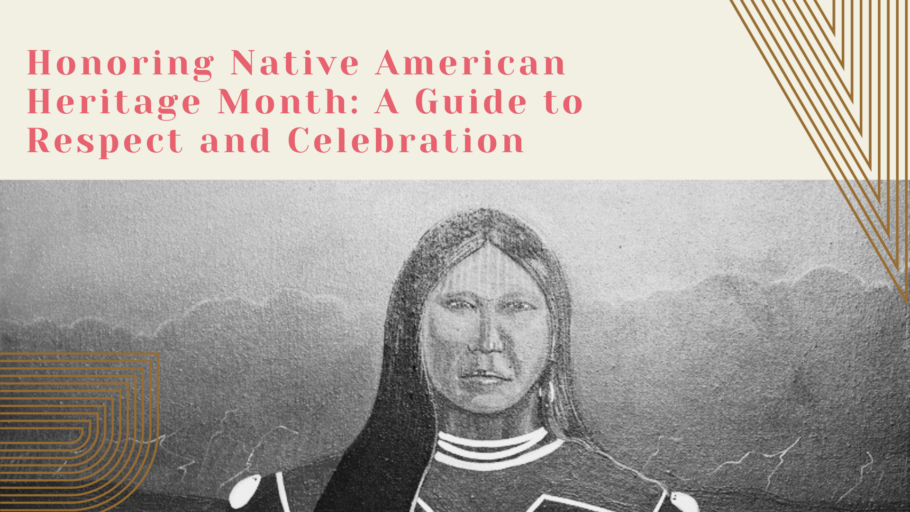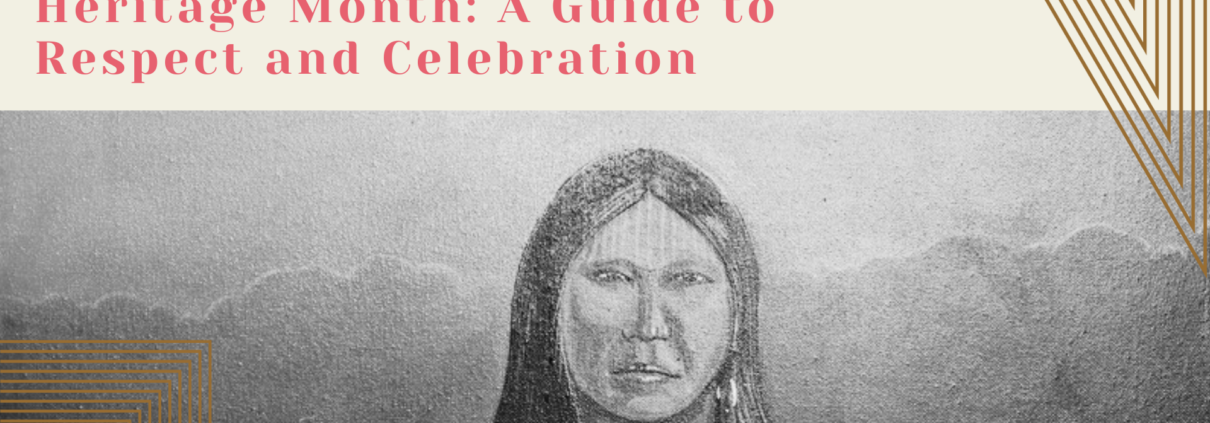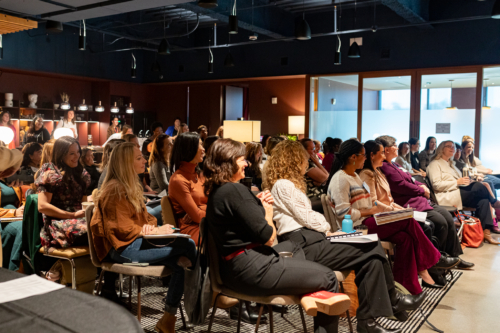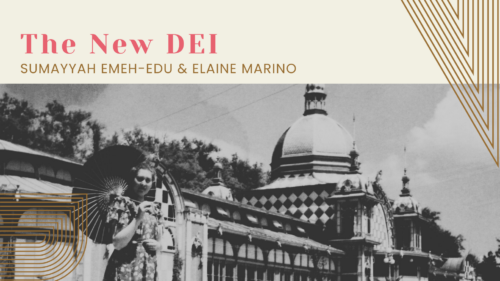Honoring Native American Heritage Month: A Guide to Respect & Celebration
This Native American Heritage Month, it is important to amplify the innovation and contributions of Native American entrepreneurs. With over 330,000 Native-owned businesses generating nearly $50 billion annually, Native Americans make significant economic impact across various sectors, from healthcare and construction to cultural arts. Although there has been a recent increase in lending to Native-owned small businesses—with a 70% rise in loans from the Small Business Administration (SBA) from 310 in 2020 to 529 in 2023—this number still represents a small fraction of the estimated 341,000 Native-owned businesses across the country. Collectively, these businesses generate over $39.7 billion in revenues
Removing these barriers is essential for continued growth!
We acknowledge that Native American Heritage Month is currently a popular and important topic, capturing attention for its cultural significance and celebration of Indigenous contributions. And, it’s crucial to emphasize that our support for Indigenous peoples and their communities should extend far beyond the month of November. The innovation and rich heritage of Native Americans deserve our continuous engagement and commitment throughout the year. By actively seeking out and supporting Native-owned businesses and initiatives, we can honor these communities in a meaningful way, ensuring that their contributions are acknowledged and valued every day. We can do this in three simple ways:
- Educate ourselves as non-indigenous people, especially getting out of our comfort zones
- Shop Indigenous-owned businesses year-round
- Centering Indigenous culture, especially in historical narratives

Wendy Red Star
Her Dreams Are True (Julia Bad Boy), 2021; (Source: National Museum of the American Indian, February 2022)
TURTLE ISLAND
Turtle Island is a term embraced by various Indigenous peoples of North America to describe the continent, steeped in rich mythology and cultural significance. Central to many Indigenous creation stories is the image of a giant turtle that supports the Earth or North America. For instance, the Iroquois creation story tells of a Sky Woman who falls from the heavens and, with the help of animals, lands on the turtle’s back, which becomes the foundation of the Earth.
Moreover, Turtle Island serves as a poignant reminder of the interconnectedness of all living things and the need for environmental stewardship. Indigenous communities often view the land as a sacred entity, deserving of protection and respect. This holistic perspective resonates strongly in current conversations around sustainability and ecological balance.
Additionally, Turtle Island is significant in discussions about Indigenous rights and sovereignty. It embodies the collective identity and resilience of Indigenous peoples, highlighting the historical and ongoing impacts of colonization. By referring to Turtle Island, Indigenous communities assert their presence and claim to the land while celebrating their shared heritage and experiences.
LEARN
Organizations such as the Library of Congress, National Archives, Smithsonian Institution, and National Park Service unite to honor the history and traditions of Indigenous peoples through exhibitions, digital collections, and events. Visit Native American Heritage Month’s official page for resources and stories that highlight the contributions of Native Americans across generations, offering a deeper understanding of their invaluable role in shaping our shared history.
First Nations is here to uplift and sustain the lifeways and economies of Native communities through advocacy, financial support, and knowledge sharing. They envision a world in which Tribal Sovereignty is upheld, and Native ingenuity and knowledge are honored and respected. Visit their site for program offerings!
ATTEND/VISIT
For non-Native individuals, it’s important to approach these traditions with respect. Take the time to research local Native Nations and understand whether participation in their spaces is welcomed or permitted.
- Colorado Indian Market & Southwest Art Fest
- Tesoro Cultural Center
- Denver March Powwow
- Respectfully research Native traditions and participation permissions. Keep an eye out for 2025’s event, and if you’re not in Denver, check your local powwow schedule for opportunities to engage respectfully with Native traditions.
- Manitou Cliff Dwellings Museum
- Sand Creek Massacre Historic Site
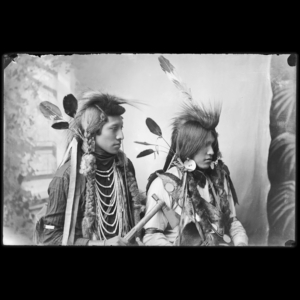
‘Untitled’ by Benedicte Wrensted; (Source: Shoshone-Bannock Tribes of the Fort Hall Reservation of Idaho)
RETREAT
Join Ancestral Harmony Retreats and Chef Andrea Murdoch for a transformative weekend retreat where Indigenous cuisines, healing practices, and daily Vipassana meditation come together in a serene and playful urban setting. Hosted in a charming, historic home, this all-inclusive experience begins with Friday dinner and ends with Sunday lunch, featuring nourishing meals and a focus on mindfulness and embodiment. Participants will engage in embodiment practices, storytelling, and ancestor work, with each receiving a hands-on bodywork session. This retreat offers a unique opportunity to reconnect with yourself, your roots, and a supportive community.
Register Today for the November 29-December 1 Retreat
SHOP
Before shopping, take time to research Native-owned and respect authentic artisanal sources.
- Alchemy Ritual Good
- Orrs Trading Post
- Kotah Bear Jewelry
- Sage Mountainflower fashion
- Tanka bars
- Candice Tallsalt children’s books
- Ginew denim
- Cheekbone cosmetics
- Lakota Body Care
Find more businesses on Shop First Nations!
READ
Still Here By Danielle SeeWalker
#BringThemHome by Chef Andrea Condes
Sand Talk by Tysonn Yunkaport
Open Veins of Latin America by Eduardo Galeano and Isabel Allende
Corn Dance by Loretta Barrett Oden (cookbook)
Tawâw Progressive Indigenous Cuisine by Shane M Chartrand (cookbook)
*Support your local, independent bookstores*
EAT
Ch’il Indigenous Foods was created with the intention to greatly increase the consumption, knowledge, and conservation of culturally significant, native plants in an effort to restore ancestral foodways. They are focused on preserving indigenous plant knowledge, indigenous agricultural practices, and native plant species as well as supporting Native American communities and the heirloom varieties they have protected. They source our ingredients directly from tribal members and their farms!
Join EATSS for a unique experience that highlights the richness of indigenous food, art, discussions, and entertainment. Set against the backdrop of Colorado’s deep American Indian roots, this event immerses attendees in Native culture, featuring the creative talents of Indigenous artisans and performers. Commemorating Native American Heritage Month, EATSS will be held at the prestigious Ellie Caulkins Opera House in Denver. All proceeds from the evening will benefit the American Indian College Fund, providing scholarships to support the next generation of Indigenous leaders. Discover more about this extraordinary evening and what awaits you!
Restaurants/Food Businesses to support in Denver:
- Tocabe (restaurant) & Tocabe Marketplace
- Four Directions Cuisine (catering, food sovereignty and cultural education, consulting)
- Convivio Cafe (bi-lingual Guatemalan Cafe)
- La Reyna Del Sur (food service)
- Dos Caras (food service, farmers markets, holiday markets)
- Other Native-owned restaurants to visit around Turtle Island

Apsáalooke feminist series #3 by Wendy Red Star; (Source: Library of Congress)
SUPPORT
Four Winds American Indian Council is a source of community for Denver Native Americans, providing resources to meet cultural and physical needs while activating our community members to fight for political change. Through their programs, they are working to create a strong, healthy, unified, and self-determining Native American community in Denver.
Spirit of the Sun is an Indigenous womxn-led nonprofit located on Očhéthi Šakówiŋ, Núu-agha-tʉvʉ-pʉ̱ (Ute), Tséstho’e (Cheyenne), Hinono’eino’ biito’owu’ (Arapaho), and 48+ other tribes’ sacred land, working to empower Native communities through farming, education and rematriation.
The National Native American Boarding School Healing Coalition was created to develop and implement a national strategy that increases public awareness and cultivates healing for the profound trauma experienced by individuals, families, communities, American Indian and Alaska Native Nations resulting from the U.S. adoption and implementation of the Boarding School Policy of 1869.
Since its founding in 1989, the American Indian College Fund has been the nation’s largest charity supporting Native student access to higher education. We provide scholarships and programming for American Indian and Alaska Native students to access higher education. And once students are in college, we provide them with the tools and support to succeed.
The National Indigenous Women’s Resource Center, Inc. (NIWRC) is a Native-led nonprofit organization dedicated to ending violence against Native women and children. The NIWRC provides national leadership in ending gender-based violence in tribal communities by lifting up the collective voices of grassroots advocates and offering culturally grounded resources, technical assistance and training, and policy development to strengthen tribal sovereignty.
CONTINUED SUPPORT
It is crucial to extend our support beyond just the designated heritage month. Engaging with and supporting Native-owned businesses, organizations, and initiatives is vital for fostering economic growth and cultural preservation. Consider donating to Native American-led organizations that work tirelessly to empower their communities. Together, we can honor their culture and contributions while making a meaningful impact.
For more information and to explore ways to donate, visit the Native Ways Federation for their list of non-profits.
